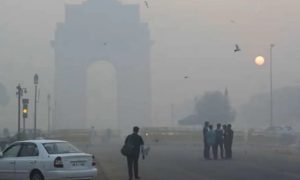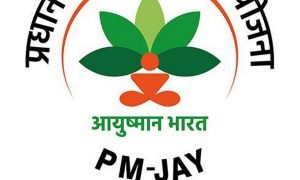The deterioration in air quality followed the burning of effigies of Ravana, Kumbhakarna, and Meghnad, which were filled with firecrackers and set ablaze in public spaces.
Read More: PM Internship Scheme: Over 1.55 Lakh Candidates Sign Up In Just 24 Hours
In a recent development, the Delhi Pollution Control Committee (DPCC) has issued a notice enforcing a complete ban on the manufacturing, sale, and online distribution of firecrackers, as well as the bursting of firecrackers, until January 1, 2025, within the National Capital Territory (NCT) of Delhi. This comes as the city’s air quality dropped to the ‘poor’ category on Sunday, a day after Dussehra celebrations. The deterioration in air quality followed the burning of effigies of Ravana, Kumbhakarna, and Meghnad, which were filled with firecrackers and set ablaze in public spaces.
Air quality deteriorates post-Dussehra
Delhi’s 24-hour average Air Quality Index (AQI) hit 224 on Sunday, according to the Central Pollution Control Board’s bulletin, placing the city firmly in the ‘poor’ category. This marked a notable decline in air quality from the previous day. However, there was a slight improvement by 5 PM, with the AQI dipping to 222. The Indian Institute of Tropical Meteorology (IITM) and the India Meteorological Department (IMD) have forecast that Delhi’s air quality could improve further in the coming days, potentially moving into the ‘moderate’ category.
Read More: Air India Flight From Mumbai To New York Diverted To Delhi After Bomb Threat
Graded Response Action Plan (GRAP) in focus
The spike in pollution has prompted the Centre to announce close monitoring of the situation. Authorities are evaluating whether to implement Stage 1 of the Graded Response Action Plan (GRAP), a multi-tier system designed to tackle air pollution in Delhi-NCR, especially during the winter months. Stage 1 of GRAP is activated when the AQI exceeds 200 and involves vehicle restrictions and a ban on using coal and firewood in hotels and restaurants.
The Commission for Air Quality Management (CAQM) Sub-Committee, responsible for overseeing GRAP measures, is assessing weather conditions and air quality data to decide whether the Stage 1 measures need to be enforced. If implemented, stricter pollution control regulations will follow, including phasing out older petrol and diesel vehicles and curbing the use of certain fuels in the food industry.
The DPCC’s firecracker ban, combined with the possible enforcement of Stage 1 of GRAP, underscores the government’s commitment to combating air pollution as winter approaches. The Sub-Committee will continue to review air quality over the coming days before finalizing its decision. If pollution levels persist or worsen, authorities are expected to enforce stricter regulations aimed at curbing vehicular emissions and reducing the use of polluting fuels, which typically contribute to the city’s smog during the colder months.
(With inputs from PTI)





































